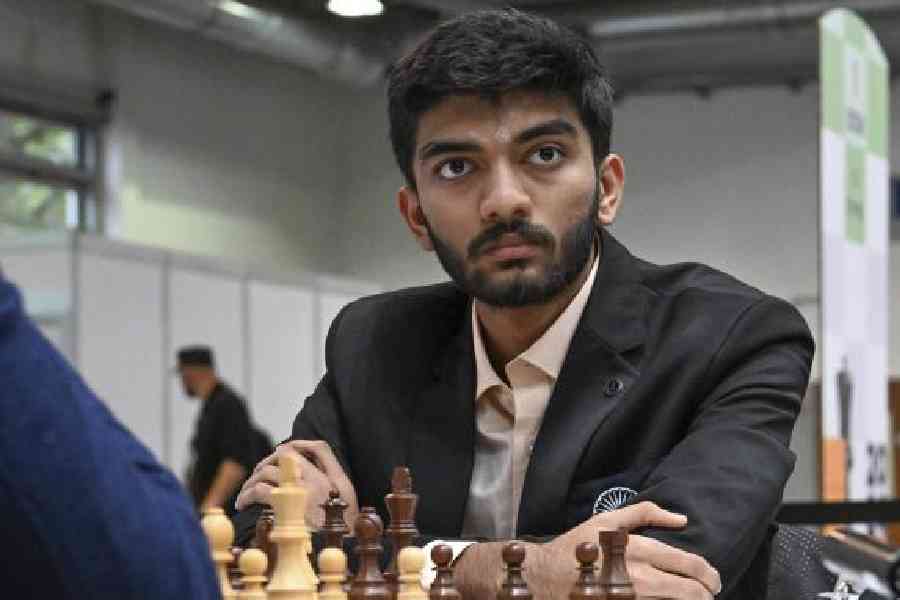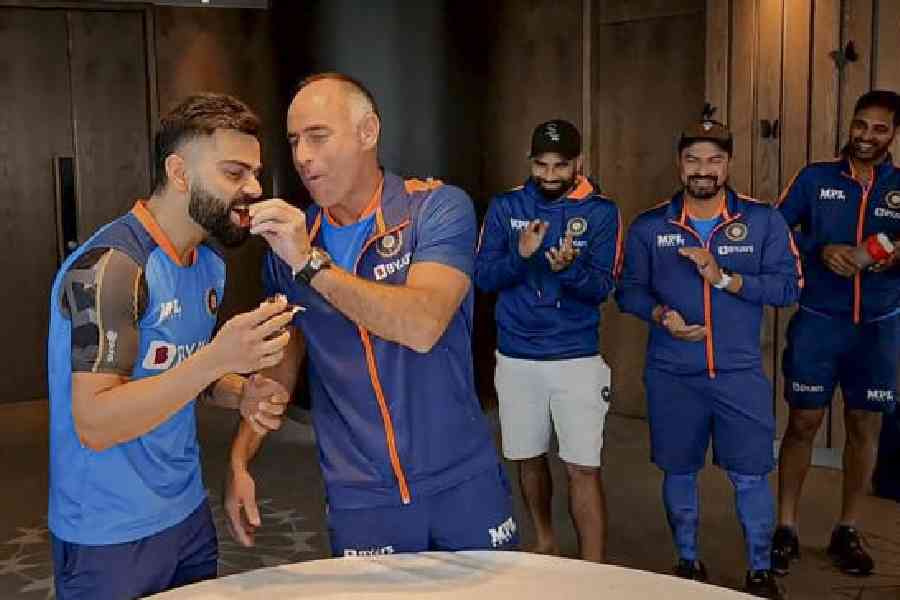What makes a great player? Is it sheer class, amazing consistency or the hunger to excel?
Paddy Upton, the mental conditioning coach who was an important member of Gary Kirsten’s support staff during India’s 2011 World Cup triumph and recently worked with the Paris Olympic Games bronze medal-winning hockey team, believes it’s the ability to deliver on the big stage that defines a great player.
Upton, the 56-year-old South African, has now been helping Dommaraju Gukesh prepare for the Fide World Chess Championship match against Ding Liren of China to be held in Singapore from next Monday. The 18-year-old from Chennai has the ability to perform when it matters, Upton believes.
“Yes, he is right up there. He has proved that in the Candidates Chess — Gukesh won the tournament to set up the clash with Ding — and then in the Chess Olympiad (India bagged the gold medal). Big players always choose big days to perform. Like Virat Kohli in the T20 World Cup in June. He was hardly amongst runs, but in the final he knew he would score. And he did,” Upton told The Telegraph from Cape Town on Monday.
Kohli, who hardly had anything to write home about till the T20 World Cup semi-final, played an impactful 76 off just 59 balls and India won the title beating South Africa by seven runs.
“That’s what we call special talent. And Gukesh is a special talent. They know when to up their game. Not many can deliver when the entire world’s focus is on you. Most of the sportspersons chicken out.”
Gukesh, the world No. 5 in the live chess rating and on the verge of breaking into the 2800 Elo rating club, is being billed as the favourite to win the 14-game World Championship face-off with the Chinese world No. 22.
From Magnus Carlsen and Viswanathan Anand to Arjun Erigaisi, the money is on Gukesh. Even the reigning world champion Ding, whose form has gone south in the last few months, thinks the Challenger has the best chance.
“He (Gukesh) is an amazing brain. At 18, he is so evolved. There are players with talent, but it’s the brain which gives you the edge. This is what I found while interacting with him. He is born with the talent and the chess brain gives him the results,” Upton said.

D. Gukesh
Upton who has had virtual sessions with Gukesh said he has no plans to travel to Singapore. “He is ready for the battle. He does not need me to be there. If the situation arises we can have a chat online.”
Working with a chess player for the first time — Gukesh’s team asked Upton if he would be interested in working with the grandmaster — Upton said recovery after a game is completely different from what it is with a cricketer or a hockey player.
“In football, cricket and hockey there is the physical (massage, ice bath) and the mental recovery. But for Gukesh it’s completely the mind which plays. So he has to relax his mind whatever way he finds suitable. It could be spending time with family, watching a movie or chatting with friends. That time he does not think about chess. The previous game is the past which you forget, the next game is the future for which you have strategised with your team. The present is all about relaxing.”
Upton felt working with a player without meeting him in person has never been a factor. “The first time I met (badminton player) Lakshya (Sen), we were already working for three months! With Gukesh it’s mainly discussions on mental strategy and if from that session a task crops up then I ask him to do that.”
If Gukesh finally manages to wear the world crown, it will be a ‘double’ for Upton. “Let’s hope he excels.”











